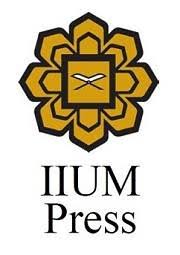الإصلاح الاجتماعي في فكر بديع الزمان سعيد النورسي: دراسة تحليلية
Social Reform in the Thought of Bediuzzaman Said Nursi: An Analytical Study
DOI:
https://doi.org/10.31436/alburhn.v4i2.177Keywords:
سعيد النورسي, الإصلاح الاجتماعي, تزكية النفس, إصلاح الأسرة, إصلاح الأمةAbstract
Social reform is considered from the Islamic perspective a vital subject for the protection of human and their fair rights in social life. Bediuzzaman Said Nursi is a prominent reformer in the late nineteenth Century. His scholarly work "Risale-i-Nur" (Treatises of Light) is regarded as a famous reform manual that was written in light of the Holy Qur’an and Prophetic Traditions. This study focuses on Risale-i-Nur in order to recognize the Social Reformation Method (SRM) that was formulated by Nursi. The researcher used analytical method in this study to explain three major points: the concept of social reformation according to Nursi, the foundations of social reformation, and the components of his SRM. As a result, the study discovers that Nursi had conceptualised that if individual is reformed, the society would consequently be reformed. Hence, he focused to formulate an effective method in reforming individual and society alike. Firstly: he emphasised on achieving self-purification through avoiding eight distractive evil characters. These are selfishness, arrogance, self-love, prestige, jealousy, impatience, unfair desires, and other forms of vices. Secondly, he emphasised on adhering to the six most important noble characters in social life. These are commitment to monotheism; the right faith, moral values, and principles; bonding of brotherhood and love; family reformation; and being virtuous. He developed this SRM consulting the Noble Qur’an and the Noble Sunnah. The application of Nursi’s SRM seems to be the suitable remedy to handle the crisis of education, moral decay, racial conflict, abuse of intellectuality, as well as cultural and civilizational backwardness of the Muslim nation.
Downloads
References
Ibn Khaldun, ʿAbd al-Raḥmān ibn Muḥammad ibn Muḥammad, Abū Zayd. 1988. Dīwān al-Mubtadaʾ wa al-Khabar fī Tārīkh al-ʿArb wa al-Barbar wa man ʿĀṣarahum min Dhawī al-Shaʾn al-ʾAkbar (Tārīkh Ibn Khaldūn) Beirut: Dār al-Fikr.
al-Bukhārī, Abū ʿAbd Allāh Muḥammad ibn Ismāʿīl. 1987. al-Jāmiʿ al-Ṣaḥīḥ al-Mukhtaṣar. Beirut: Dār Ibn Kathīr.
al-Bayḥaqī, Aḥmad ibn al-Ḥusayn ibn ʿAlī. 2003. al-Sunan al-Kubrā. Beirut: Dār al-Kutub al-ʿIlmiyyah.
Muslim, ibn al-Ḥajjāj. (n.d.). al-Ṣaḥīḥ. Beirut: Dār Iḥyāʾ al-Turāth al-ʿArabī.
al-Nūrsī, Badīʿ al-Zamān Saʿīd. 2011. al-Sīrah al-Dhātiyyah. Cairo: Shirkah Sūzlar li al-Nashr.
al-Nūrsī, Badīʿ al-Zamān Saʿīd. 2011. al-Shuʿāʿāt. Cairo: Shirkah Sūzlar li al-Nashr.
al-Nūrsī, Badīʿ al-Zamān Saʿīd. 2011. Ṣayqal al-Islām. Cairo: Shirkah Sūzlar li al-Nashr.
al-Nūrsī, Badīʿ al-Zamān Saʿīd. 2011. al-Kalimāt. Cairo: Shirkah Sūzlar li al-Nashr.
al-Nūrsī, Badīʿ al-Zamān Saʿīd. 2011. al-Lamaʿāt. Cairo: Shirkah Sūzlar li al-Nashr.
al-Nūrsī, Badīʿ al-Zamān Saʿīd. 2011. al-Maktūbāt. Cairo: Shirkah Sūzlar li al-Nashr.
al-Nūrsī, Badīʿ al-Zamān Saʿīd. 2011. al-Malāḥiq. Cairo: Shirkah Sūzlar li al-Nashr.
al-Warghī, al-Shaykhah. 2008. al-Buʿd al-Rūḥī fī Manhaj al-Daʿwah ʿinda Badīʿ al-Zamān Saʿīd al-Nūrsī. Baḥth Muqaddam li Nayl Darājah al-Mājistīr min Kulliyyah al-ʿUlūm al-Ijtimāʿiyyah wa al-ʿUlūm al-Islāmiyyah. Algeria: Jāmʿah al-ʿAqīd al-Ḥājj Lakhḍar Bātnah.
Downloads
Published
How to Cite
Issue
Section
License
In general, reusing or reproducing substantial portions of al-Burhān content requires permission. This includes the use of text, figures, tables, multimedia content, and any other material published in any issues of al-Burhān Journal of Qur'an and Sunnah Studies. For some instances, al-Burhān may make its content freely viewable; however, such material may require permission for reuse. To seek permission, please contact the editorial.









